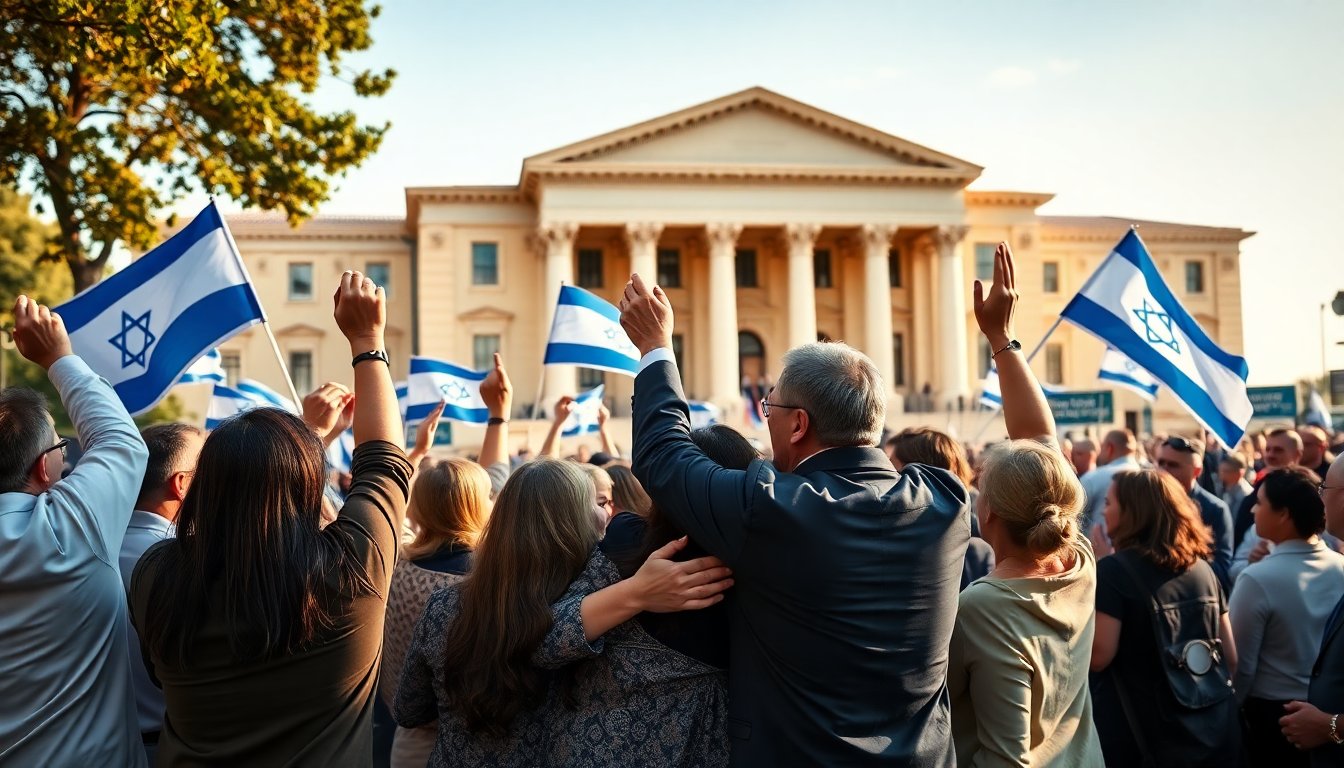Table of Contents
In a significant moment for international relations, Donald Trump addressed the Knesset in Israel, following the release of hostages by Hamas. This pivotal event has generated a mixture of hope and skepticism among Israelis and Palestinians. While some view this as a step towards peace, others express concern over the fragility of the situation, particularly in light of recent violence in Gaza.
The atmosphere in Israel was one of celebration, particularly among families of the freed hostages. A father conveyed his joy, stating, “We’re thrilled, the whole country is thrilled,” underscoring the emotional weight of the moment. However, beneath this optimism lies a complex web of challenges that could hinder any long-term resolution between the conflicting parties.
Current developments in the region
As Trump and Israeli Prime Minister Benjamin Netanyahu stood together in the Knesset, the two leaders received enthusiastic applause. Trump, often regarded as a potential peace broker, described the occasion in the guest book as “a new beginning.” This sentiment resonates with many Israelis eager for stability and peace after months of conflict.
However, the future of the peace plan remains uncertain. Reports indicate that internal strife may arise within Gaza as Hamas confronts local clans, raising fears of renewed violence. Despite a ceasefire in place, the reality on the ground is complex, with dire humanitarian conditions persisting in many areas.
Humanitarian efforts in Gaza
Recent developments have facilitated a much-needed influx of humanitarian aid into Gaza, including the long-awaited resumption of cooking gas supplies. Families that had been relying on open fires for cooking can now access this essential resource. The United Nations Office for the Coordination of Humanitarian Affairs (OCHA) reported significant progress in aid deliveries, noting that essential supplies like tents, frozen meat, and medical assistance have begun reaching those in need.
While the situation is improving, humanitarian agencies emphasize that the flow of aid must continue to increase to address the overwhelming needs of Gaza’s population. The ongoing conflict has left many without basic necessities, and the path to recovery remains fraught with challenges.
The road to peace: challenges ahead
As Trump prepares to attend a peace summit in Sharm el-Sheikh, Egypt, the stakes are high for all parties involved. The meeting aims to solidify commitments to the peace agreement and outline steps for reconstruction in Gaza. However, critical aspects of the peace plan, particularly regarding the disarmament of Hamas and the future governance of Gaza, remain unresolved.
While Trump has asserted that the war is over, other leaders, including Netanyahu, have expressed caution, indicating that the situation may still be volatile. This disparity in perspectives highlights the complexities of achieving lasting peace in the region.
International support and future prospects
The upcoming summit is expected to gather numerous world leaders, including Palestinian President Mahmoud Abbas and Canadian Prime Minister Mark Carney. Canada’s recent recognition of a Palestinian state is seen as a significant step towards fostering dialogue and ensuring the viability of a two-state solution. The Prime Minister’s Office has emphasized Canada’s commitment to supporting the Palestinian Authority in implementing necessary reforms and promoting peace.
As the international community watches closely, the outcome of the Sharm el-Sheikh meeting could be pivotal in shaping the future of Israeli-Palestinian relations. However, the path to a comprehensive agreement will likely be long and arduous, requiring cooperation and goodwill from both sides.
The atmosphere in Israel was one of celebration, particularly among families of the freed hostages. A father conveyed his joy, stating, “We’re thrilled, the whole country is thrilled,” underscoring the emotional weight of the moment. However, beneath this optimism lies a complex web of challenges that could hinder any long-term resolution between the conflicting parties.0


